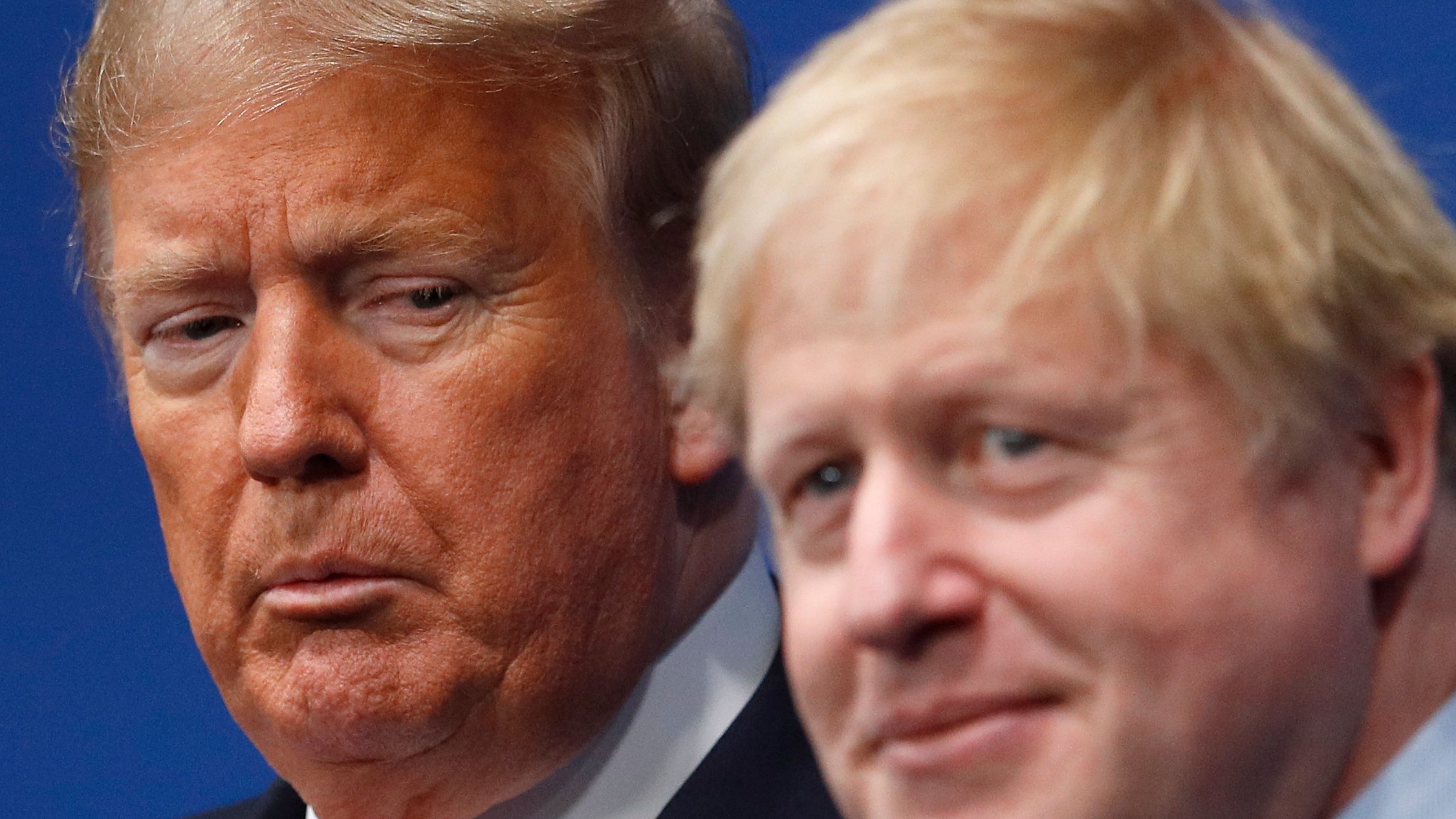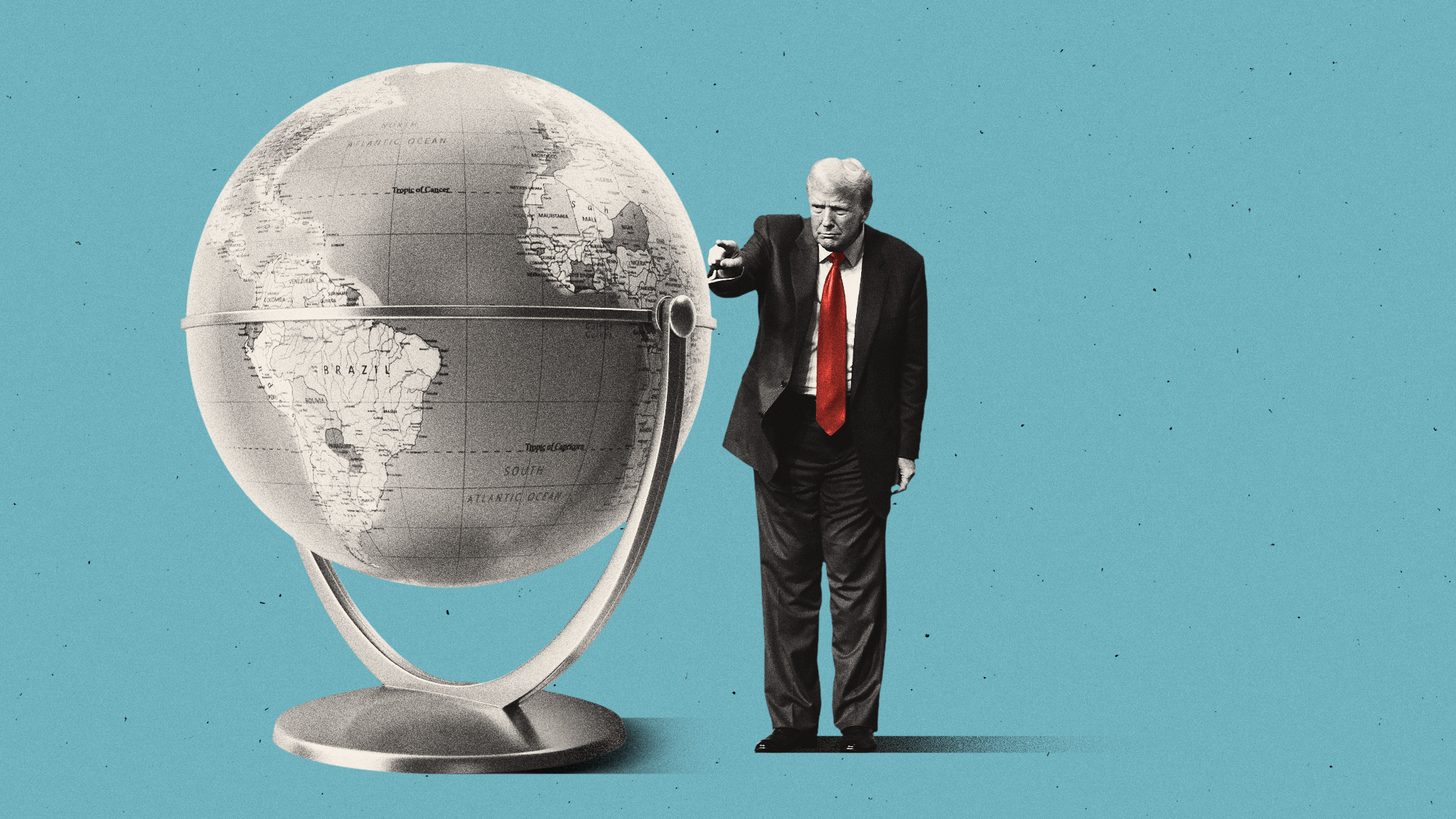The future of the UK’s ‘special relationship’ with the US
Disagreements over Huawei and Iran have strained the ties between Western allies

A free daily email with the biggest news stories of the day – and the best features from TheWeek.com
You are now subscribed
Your newsletter sign-up was successful
US Secretary of State Mike Pompeo has described Boris Johnson’s move to allow Huawei a “limited role” in building Britain’s 5G network as a “momentous decision”.
According to the Financial Times, Pompeo is “expected to have a frank exchange of views” with the prime minister over the decision after flying into London today.
The very public disagreement between the UK and US over Chinese technology company Huawei comes at a “sensitive time” in the so-called “special relationship” between the two countries, the newspaper adds.
The Week
Escape your echo chamber. Get the facts behind the news, plus analysis from multiple perspectives.

Sign up for The Week's Free Newsletters
From our morning news briefing to a weekly Good News Newsletter, get the best of The Week delivered directly to your inbox.
From our morning news briefing to a weekly Good News Newsletter, get the best of The Week delivered directly to your inbox.
Indeed, following a series of disputes in recent months, questions are being raised about the future ties between the historic allies.
Trump’s way or the Huawei
President Donald Trump has warned that allowing Huawei access to the UK’s 5G network could pose a threat to national security, and views Johnson’s decision as a “craven surrender of national sovereignty over data to the Chinese state”, says the FT.
Republican senator Tom Cotton has said that working with Huawei is “like allowing the KGB to build its telephone network during the Cold War”, says The Independent, while Pompeo tweeted that “only nations able to protect their data will be sovereign” going forward.
A free daily email with the biggest news stories of the day – and the best features from TheWeek.com
As the Independent reports, Johnson risked Trump’s “wrath” by deciding to pursue a deal with Huawei, with the president previously hinting that the decision could “cast into question American willingness to share intelligence” with the UK.
The decision also comes at a time when the UK is on the cusp of leaving the European Union and would like to be cultivating the special relationship, rather than harming it. s Axios reports, Johnson’s call could “profoundly harm” the dynamic between America and Britain, potentially damaging future trade discussions.
So what has the fallout been?
According to The Telegraph, Johnson has already made moves to “heal the rift” between the two countries.
The paper reports that Johnson told Trump that “he will never again allow Britain to become reliant on Chinese technology”, assuring the president that “Britain would work with the US to ‘break the dominance’ of companies like Huawei”.
The PM also paid lip service to the US, saying that Huawei’s share of the 5G market will be capped at 35% for each of Britain’s four mobile phone operators.
This appears to have soothed tensions, with senior US figures telling The Guardian that while Washington was “disappointed”, the US-UK security and economic relationship is considered to be “too important to jeopardise”.
–––––––––––––––––––––––––––––––For a round-up of the most important stories from around the world - and a concise, refreshing and balanced take on the week’s news agenda - try The Week magazine. Start your trial subscription today –––––––––––––––––––––––––––––––
What is the future of the ‘special relationship’?
On this occasion, Johnson has avoided a full-blown confrontation with Washington. But the dispute is indicative of the shifting sands on which the two countries’ relationship is built.
As the New Statesman highlights, the choice to allow the Chinese tech company into the British market shows the UK “sticking ever closer to the European consensus, even as it claims to be deepening alliances with old friends”, aka the US.
“At the moment it suits both the Trump administration and Johnson’s government to sell the two countries as best of buds,” the magazine notes.
However, on back-to-back foreign policy decisions – Huawei and previously the Iran nuclear deal – “the UK looks at the US, and decides it has more in common with the Europeans”.
As the FT notes, Trump is also unhappy at a plan for a digital services tax that will heavily hit US technology companies. “His administration has threatened tariffs on UK car exports,” the paper reports, but Johnson has held his ground.
Back in July 2019, Trump said that Johnson was “a really good man”. “He’s tough and he’s smart,” Trump said, “they call him ‘Britain Trump’ and people are saying that’s a good thing.”
Whether Trump’s warm feelings towards the PM will last remains to be seen.
-
 Sepsis ‘breakthrough’: the world’s first targeted treatment?
Sepsis ‘breakthrough’: the world’s first targeted treatment?The Explainer New drug could reverse effects of sepsis, rather than trying to treat infection with antibiotics
-
 James Van Der Beek obituary: fresh-faced Dawson’s Creek star
James Van Der Beek obituary: fresh-faced Dawson’s Creek starIn The Spotlight Van Der Beek fronted one of the most successful teen dramas of the 90s – but his Dawson fame proved a double-edged sword
-
 Is Andrew’s arrest the end for the monarchy?
Is Andrew’s arrest the end for the monarchy?Today's Big Question The King has distanced the Royal Family from his disgraced brother but a ‘fit of revolutionary disgust’ could still wipe them out
-
 Munich Security Conference: a showdown between Europe and Trump?
Munich Security Conference: a showdown between Europe and Trump?Today’s Big Question Report suggests European leaders believe they can no longer rely on the US for military support – but decoupling is easier said than done
-
 New START: the final US-Russia nuclear treaty about to expire
New START: the final US-Russia nuclear treaty about to expireThe Explainer The last agreement between Washington and Moscow expires within weeks
-
 Would Europe defend Greenland from US aggression?
Would Europe defend Greenland from US aggression?Today’s Big Question ‘Mildness’ of EU pushback against Trump provocation ‘illustrates the bind Europe finds itself in’
-
 Greenland, Colombia, Cuba: where is Donald Trump eyeing up next?
Greenland, Colombia, Cuba: where is Donald Trump eyeing up next?Today's Big Question Ousting Venezuela’s leader could embolden the US administration to exert its dominance elsewhere
-
 Did Trump just end the US-Europe alliance?
Did Trump just end the US-Europe alliance?Today's Big Question New US national security policy drops ‘grenade’ on Europe and should serve as ‘the mother of all wake-up calls’
-
 Trump peace deal: an offer Zelenskyy can’t refuse?
Trump peace deal: an offer Zelenskyy can’t refuse?Today’s Big Question ‘Unpalatable’ US plan may strengthen embattled Ukrainian president at home
-
 Vladimir Putin’s ‘nuclear tsunami’ missile
Vladimir Putin’s ‘nuclear tsunami’ missileThe Explainer Russian president has boasted that there is no way to intercept the new weapon
-
 Russia’s war games and the threat to Nato
Russia’s war games and the threat to NatoIn depth Incursion into Poland and Zapad 2025 exercises seen as a test for Europe